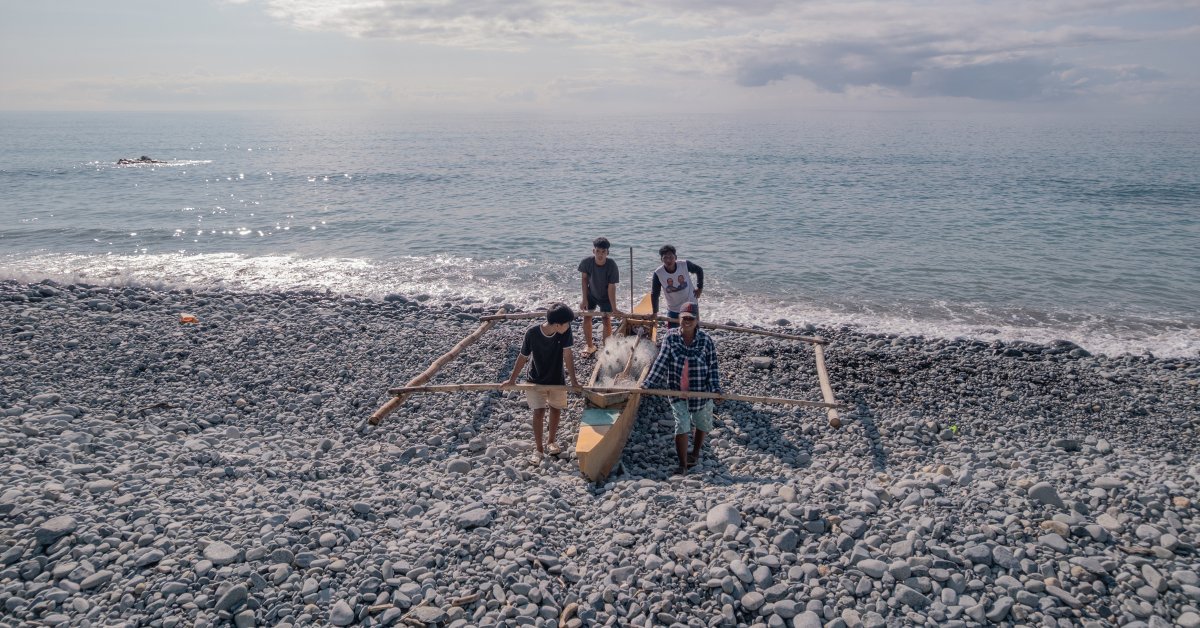The Struggle For Survival: How Climate Change Affects Philippine Fishing Communities

Welcome to your ultimate source for breaking news, trending updates, and in-depth stories from around the world. Whether it's politics, technology, entertainment, sports, or lifestyle, we bring you real-time updates that keep you informed and ahead of the curve.
Our team works tirelessly to ensure you never miss a moment. From the latest developments in global events to the most talked-about topics on social media, our news platform is designed to deliver accurate and timely information, all in one place.
Stay in the know and join thousands of readers who trust us for reliable, up-to-date content. Explore our expertly curated articles and dive deeper into the stories that matter to you. Visit Best Website now and be part of the conversation. Don't miss out on the headlines that shape our world!
Table of Contents
The Struggle for Survival: How Climate Change Affects Philippine Fishing Communities
The Philippines, an archipelago of over 7,000 islands, boasts a rich marine biodiversity and a culture deeply intertwined with fishing. However, this vital sector faces an unprecedented threat: climate change. Rising sea levels, ocean acidification, and increasingly erratic weather patterns are pushing Filipino fishing communities to the brink of survival, demanding immediate action and innovative solutions.
The Devastating Impacts of Climate Change
Climate change manifests in various ways, each impacting Philippine fishing communities differently:
-
Increased frequency and intensity of typhoons: These powerful storms destroy fishing vessels, damage coastal infrastructure, and disrupt fishing activities for extended periods, leaving families without income and food security at risk. The recent intensification of typhoons like Haiyan (Yolanda) serves as a stark reminder of this devastating impact.
-
Coral bleaching and reef degradation: Rising ocean temperatures lead to coral bleaching, destroying vital habitats for countless fish species. This directly impacts fish populations, reducing catches and jeopardizing the livelihoods of those dependent on reef ecosystems. The loss of coral reefs also exacerbates coastal erosion, further threatening communities.
-
Ocean acidification: Increased carbon dioxide absorption by the oceans leads to acidification, harming shellfish and other marine organisms that form the base of the food chain. This has cascading effects on the entire ecosystem, impacting the abundance and diversity of fish stocks.
-
Changes in fish migration patterns: Shifting ocean temperatures and currents are altering the distribution and migration patterns of fish, forcing fishermen to travel further and expend more resources to find their catch. This increased fuel cost and reduced catch further strains already vulnerable communities.
-
Sea level rise: Rising sea levels lead to saltwater intrusion into freshwater sources, impacting aquaculture and damaging coastal habitats crucial for fish breeding and nursery grounds. This threatens food security and the overall sustainability of fishing practices.
Adapting to a Changing Environment: Challenges and Solutions
Filipino fishing communities are demonstrating remarkable resilience in the face of these challenges. However, they require significant support to adapt effectively:
-
Investing in climate-resilient infrastructure: Building stronger fishing vessels, improving port facilities, and developing early warning systems for extreme weather events are crucial steps to mitigate the impacts of climate change.
-
Promoting sustainable fishing practices: Implementing stricter regulations to combat overfishing, promoting selective fishing techniques, and establishing marine protected areas are vital for preserving fish stocks and ensuring long-term sustainability. [Link to an article on sustainable fishing practices]
-
Developing climate-smart aquaculture: Diversifying income sources through sustainable aquaculture practices can provide a buffer against fluctuations in wild fish catches. This includes exploring climate-resilient species and adopting eco-friendly aquaculture techniques.
-
Strengthening community resilience: Providing access to financial assistance, insurance schemes, and capacity-building programs can empower fishing communities to better cope with the impacts of climate change. This includes training in alternative livelihoods and disaster preparedness.
-
International Collaboration: International cooperation and funding are vital to support research, capacity building, and the implementation of adaptation measures in the Philippines. This collaborative effort is essential for effective and widespread change.
A Call to Action:
The plight of Philippine fishing communities underscores the urgent need for global action on climate change. Supporting sustainable development initiatives, promoting climate-resilient practices, and advocating for stronger international collaborations are crucial to securing the future of these vulnerable communities and preserving the rich biodiversity of the Philippine seas. The time to act is now. Learn more about how you can contribute to supporting these communities and fighting climate change by visiting [Link to a relevant organization or campaign].

Thank you for visiting our website, your trusted source for the latest updates and in-depth coverage on The Struggle For Survival: How Climate Change Affects Philippine Fishing Communities. We're committed to keeping you informed with timely and accurate information to meet your curiosity and needs.
If you have any questions, suggestions, or feedback, we'd love to hear from you. Your insights are valuable to us and help us improve to serve you better. Feel free to reach out through our contact page.
Don't forget to bookmark our website and check back regularly for the latest headlines and trending topics. See you next time, and thank you for being part of our growing community!
Featured Posts
-
 The Cavalry Aint Coming Friends Actors Urgent Message Following Antisemitic Violence
Jun 07, 2025
The Cavalry Aint Coming Friends Actors Urgent Message Following Antisemitic Violence
Jun 07, 2025 -
 Live Stream Karen Read Trial Continues With Anticipated Witness Testimony
Jun 07, 2025
Live Stream Karen Read Trial Continues With Anticipated Witness Testimony
Jun 07, 2025 -
 Karen Read Murder Trial Day By Day Updates And Live Stream Information
Jun 07, 2025
Karen Read Murder Trial Day By Day Updates And Live Stream Information
Jun 07, 2025 -
 Free 2025 Belmont Stakes Predictions Identifying Top Longshot Bets At Saratoga
Jun 07, 2025
Free 2025 Belmont Stakes Predictions Identifying Top Longshot Bets At Saratoga
Jun 07, 2025 -
 Employment Data Revised 100 000 Fewer Jobs Added In March And April
Jun 07, 2025
Employment Data Revised 100 000 Fewer Jobs Added In March And April
Jun 07, 2025
